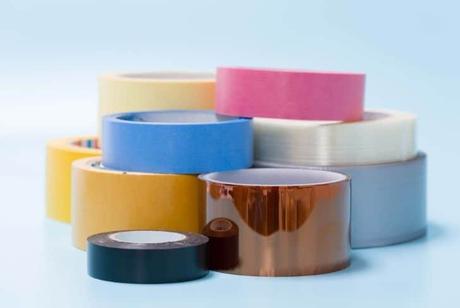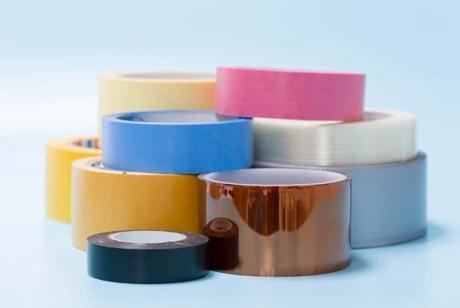Is Sellotape Recyclable?
Look around many homes and offices in America; one thing you are likely going to find is sellotapes. The reason for this is not unconnected to their vastly beneficial use to humans. For years, sellotapes have been in great use among people either to stabilize the loose end of something or to just hold different things in place.
This popularity is why some environmental concerns about sellotapes are being raised. Fine, we might be doing well with producing these sellotapes to meet market demands, but are we doing well enough to ensure that they don’t negatively affect the environment?

Beyond using them, can we recycle sellotapes? Are they biodegradable or compostable? What about their friendliness to the environment; is that even guaranteed? Also, if we want to dispose of these old sellotapes that we no longer need, what are the right ways to do this? These germane questions on sellotapes and their possible impacts on the environment are what this post provides answers to.
No doubt, there is a lot to gain by sticking around to read this post through to the end. So, without wasting time, why not fasten your seat belt, and let’s dive into the matter.
Can You Recycle Sellotape?
Due to its frequent use, there are so many questions about sellotape. Many are concerned about the environmental impact they might have. And one way of really determining this is by considering whether sellotape is recyclable. This question is what this segment provides an answer to.
Unfortunately, sellotapes are not recyclable. The reason for this is not farfetched. Sellotapes are considered soft plastics, which are often difficult to recycle. Also, the materials that sellotapes are made of are sticky tapes which largely contain polypropylene materials. And, almost everywhere globally, recyclers don’t favor the recycling of polypropylene materials used for something like sellotapes because of the difficulties the materials can pose.
Aside from this, sellotapes have a sticky texture that also makes recycling extremely difficult or impossible. In many cases, it is difficult to completely remove these sticky materials or gum from the sellotapes. Where this is impossible, recycling can’t be possible.
Also, because of the sticky materials on these sellotapes, there is a greater likelihood that other materials will stick to them after they are used. For instance, if a sellotape was used to hold paper wrappings for a Christmas gift, it is possible that after removing the sellotapes, there will still be some pieces of paper on it.
Generally, this should not create many problems if paper and plastics can undergo the same recycling process. But this is not possible. Sellotapes are soft plastics materials, while paper wrappings are paper materials. Both require different recycling processes to turn out as new materials. Hence, a recycling problem is created.
In all, sellotapes, though they may prove useful and handy when wrapping gifts or we need to hold some things together, are not recyclable. And this may be another big concern for the environment.
Is Sellotape Biodegradable?
As explained above, sellotape materials are soft plastics that are unlikely to be biodegradable, especially since plastic materials are difficult to break down. So, to answer the question, most sellotapes that are in use today are not biodegradable.
However, this does not mark an end to it. There are now biodegradable sellotapes. These types of sellotapes have been made from naturally-based glue and cellulose film. The rest of their materials also stem from renewable plant-based ingredients.
With these sellotapes, you don’t have to worry much about the environment because when you dispose of them, they will easily biodegrade. The problem, however, is that they are relatively new and more expensive to purchase, so their usage is not as frequent as we would have loved to see it.
In all, when next you go to the store to purchase some sellotapes, it is better to consider the materials they are made of. By doing this and purchasing the biodegradable ones, you are contributing positively to the environment.
Is Sellotape Compostable?
Generally, for something to be compostable, it has to be capable of breaking down easily. With commercial sellotapes that are made with soft plastics, this is not the case. They will hardly break down in your home compostable bin. This is why it is a bad idea to compost sellotapes.
You should not also compost sellotapes because of the various materials that are contained in them. You have the polypropylene materials and the gum that are used for the sellotapes. These materials often contain chemical elements that can leach into your compost bin and pollute it or even prevent the compost bin’s content from breaking down.
The only way that it seems you can adapt to compost your sellotapes is by sending them for industrial composting. In America, few industrial plants accept household materials that are difficult to compost.
All you will need to do is search the web for one of the industrial plants near you with a program that accepts sellotapes. These industrial plants have a special procedure for composting sellotapes and making them fit for plants or other home or industrial uses.
However, there might be some glimpse of hope around the corner. Recall that we mentioned earlier that sellotapes are now being made with natural and renewable materials. Though they are still relatively new, for this kind of sellotapes, you can always toss them in your recycling bin.
Because they contain materials like natural-based glue and cellulose films, organisms will quickly act on them and break them down in your compost.
In all, it appears that you have two options with composting your sellotapes. If you are using the traditional sellotapes made with soft plastics, you can only send them to designated industrial plants for composting. It would be a bad idea to compost this kind of sellotapes in your curbside compost bin.
If, however, you are using the relatively new sellotapes made with natural and renewable materials like cellulose film, you can always toss that in your curbside compost bin. It will do just well by breaking down in due time.
Is Sellotape Eco-Friendly?
The environmental friendliness of a product seems to have gained popularity in recent times. In many discussions, it is the determinant of the continuous use or abandonment of many household products. In this light, we are considering whether sellotapes are eco-friendly or not. The subsequent paragraphs contain answers to this question. Let’s take a look!
Depending on what kind of material you are considering, sellotapes may be dangerous to the environment. Recall that we made a distinction earlier about the two types of sellotape materials in use. The first (soft plastic materials) is not environmentally friendly. The reason for this is numerous but straightforward.
First, considering the materials they are made of (soft plastics or polypropylene), they don’t biodegrade easily. Though sellotapes may have a soft texture, they are still plastic materials. And, as far as we know, plastic materials may take thousands of years to breakdown.
This problem is even compounded when you consider that you can hardly recycle this kind of sellotapes. This means that a considerable number of these soft plastic sellotapes end up in the landfill where they pollute the environment there.
Since they don’t biodegrade, they are susceptible to different activities that are not eco-friendly. For instance, due to their light-weight, they could easily be blown by the wind or washed by the flood to undesired places. One place they can end up is in the sea. Here, the sellotape doesn’t just pollute the environment; they endanger the aquatic animals, which are largely undiscerning and could consume the soft plastic sellotapes.
If you add that these sellotapes are not compostable at home but only in an industrial plant, the negative effects they potentially have on the environment will become more glaring.
On the other side, however, the second type of sellotapes made with 100% natural materials, including their glue, is not environmentally dangerous. Since these sellotapes entirely come from natural and renewable sources, they are easily broken down if they end in the landfill. As such, they pose no major environmental problem. You can also recycle and compost this kind of sellotapes with ease. All these show that we don’t have to worry about the environment when using this kind of sellotapes.
In all, sellotapes can be eco-friendly if they are naturally made. If they are not, they could be dangerous to the environment. It follows that, for the protection of the environment, we should all encourage the use of naturally made sellotapes for the home or office activities we need them for.
How Do You Dispose Of Old Sellotapes?
Disposing of old items will always be ideal in every society. But, what’s more important is the ways these old things are disposed of. Not all household products require the same means of disposal. For old sellotapes, the ways to dispose of them are provided below.
1. Recycle Them
This will always be the number one option to consider whenever you think about disposing of household material. For sellotapes made with soft plastics, there might not be easy ways to recycle them because of their unique materials and composition. But the sellotape made with natural and renewable materials can be easily recycled. So, you can always adapt this option for their disposal.
2. Donate Them
You don’t have to worry about the usefulness of sellotapes after becoming old. The good news is that they will still almost be in great use. So, if you are not in good need of them again, you can dispose of the sellotapes by donating them.
Many charity homes are willing to have those old sellotapes. Even if they don’t use them, they can always sell them to those who need the sellotapes and use the money for other charitable courses.
3. Sell Them
Who says you can’t make some money off your old stuff? Well, with sellotapes, you can make some money by selling them in local stores or thrift stores. You can also explore online means of selling them through eBay or Facebook. One thing you have to ensure is that your sellotapes are still very much durable.
4. Use Them For Compost
Like we pointed out above, you can use your sellotapes to make compost. This is a great way to dispose of it. But then, you have to mark the difference in materials, as this will inform whether you can compost the old sellotapes at home or send them to industrial plants.
5. Gift Them
Yes, you can always gift your old sellotapes to friends, colleagues, or neighbors. If the sellotapes are still durable, your friends and loved ones can use them to tape their gifts or any other uses they might wish.
Conclusion
Sellotapes have been with us for quite a while. In the same way, the effects they are having on the environment are climbing up daily. This is why it has become everyone’s responsibility to ensure that sellotapes are properly disposed of when they are used. Above, you have seen ways to go about this. It is now in your hands to do the right thing and help save the environment.
References
https://groceries.asda.com/product/stamps-sticky-tape-pens/sellotape-zero-plastic/1000231165243
https://www.sainsburys.co.uk/gol-ui/product/sellotape-zero-plastic


